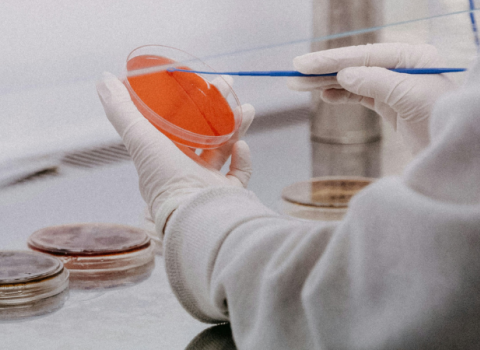The world’s most advanced institute for disease and emergency analytics is opening in London this week.
J-IDEA, the Abdul Latif Jameel Institute for Disease and Emergency Analytics, headquartered at Imperial College London, will rapidly respond to emergencies such as epidemics, extreme climate events, and natural and humanitarian disasters.
J-IDEA will tackle crises, such as Ebola and MERS, alongside longer-term global priorities, including the impact of climate change on health, using cutting-edge data science and public health research to deliver policy insights.
The new institute brings together the world’s foremost epidemiologists, biostatisticians, medics and data scientists as they break down barriers between academic expertise and on-the-ground impact.
Researchers in public health, data modelling and analytics will use real-time analyses and intervention modelling to contain outbreaks, protect vulnerable communities, strengthen on-the-ground data collection and analytical capability, and understand the drivers of resilience in health emergencies.
J-IDEA is co-founded by Community Jameel, the global philanthropy established by Mohammed Abdul Latif Jameel KBE.
Professor Alice Gast, President of Imperial College London, said: “We are at an inflexion point in global health. We are on the cusp of a world free from diseases like polio, and our ambitions go further. J-IDEA will bring our world-leading researchers together with a new sense of energy and urgency to pursue some of the most important public health work in the world.
“Community Jameel’s foresight in creating this partnership will have a profound global impact for generations to come.”
Professor Neil Ferguson will serve as J-IDEA’s first director. The distinguished epidemiologist is well known for his advances in mathematical models of the geographic spread of emergent pathogens, including BSE, foot and mouth disease, SARS, MERS, pandemic influenza, Ebola and Zika.
The institute’s researchers and collaborators will work to mitigate and prevent public health emergencies in regions as varied as the DR Congo, Saudi Arabia, Hong Kong and Mexico.
Among the lead academics at J-IDEA are:
- Professor Majid Ezzati, who has developed a global map of disease burden by phenotyping countries across multiple diseases and related forecasting tools;
- Dr Katharina Hauck, an expert in predicting pandemics via combined global analysis of zoonotic outbreak risk and health system weakness;
- Professor Tim Hallett, an expert on scaling-up delivery platforms for HIV and child health services.
They will be joined by multiple other Imperial academics, including Professor Helen Ward, Professor Edward Gregg and Professor Kalipso Chalkidou.
J-IDEA researchers’ experiences include using mathematical modelling methodologies to understand how antimicrobial resistance emerges and can be halted, bringing primary healthcare to war zones and refugee camps, developing data-based policies to improve the health of city dwellers, and evaluating the world’s largest HIV test and treat programme.
Fady Jameel, President, International of Community Jameel, said: “J-IDEA will serve as a beacon for the power of health data analytics, transforming lives locally and across the world. We are proud to support such important and urgent work.
“Imperial is a world-leader in data science, public health and turning research discoveries into societal benefit. J-IDEA will accelerate the development of this expertise into effective and affordable interventions in low and middle-income countries.
“Innovating for a better world and empowering communities are at the heart of Community Jameel’s vision. That’s why building local expertise through research partnerships and training opportunities, especially in low and middle income countries, will be a priority for J-IDEA. This international flow of insight, combined with Imperial’s unsurpassed expertise, will ensure that J-IDEA’s work remains intimately linked to the health challenges that matter most to local health policy-makers and practitioners. These insights will be the decisive factor in winning the battle for better global health.”
Professor Neil Ferguson, Director of J-IDEA, said: “Global crises need global solutions, and collaboration is at the core of J-IDEA. Over the last 20 years, we have seen an explosive growth in data, covering almost every dimension of human life and activity. For global health researchers, this represents an unprecedented opportunity.
“The Jameel Institute for Disease and Emergency Analytics will cut through the noise, drawing out actionable information and driving effective and affordable policy responses that will transform the health of communities around the world.”
Embedded in Imperial College’s London’s new School of Public Health at White City, J-IDEA will have five initial areas of focus:
1) Leading partnerships for world health policy
Driving strategic partnerships and collaborative work programmes with the World Health Organization and other major global health agencies.
2) Advancing cross-cutting public health research from infection to chronic diseases
Supporting research programmes spanning communicable and non-communicable diseases in partnership with low-and-middle-income country research institutes, focusing on parts of the world currently left out of the advances in preventing both chronic and infectious diseases.
3) Changing the paradigm and establishing thought leadership
Convening world leaders to drive the best thinking and initiate collaborations around the world.
4) Inspiring and training the next generation of researchers beyond our borders
Supporting research fellowships, PhD studentships and academic visitor programmes to bring collaborators and build capabilities in low-and-middle-income countries.
5) Expanding global translational capacity
Facilitating multi-disciplinary short courses health professionals and policy-makers in low-and-middle-income countries, to bring the power of analytics to health policy and planning to their countries.
Community Jameel’s co-founding of J-IDEA is part of Imperial College’s £100m Transforming Health and Wellbeing campaign to support a new School of Public Health at the College’s White City Campus which will pioneer new approaches to society’s most pressing healthcare challenges in four key areas: World Health, the focus of J-IDEA, Food and Nutrition, Community Health and Policy, and Children’s Health and Wellbeing, which is being supported by an earlier major gift from Marit Mohn.
Community Jameel has a long track-record of working in global health and applying innovation to improve health outcomes for vulnerable people. In Saudi Arabia, Community Jameel opened the Abdul Latif Jameel Hospital in Jeddah in 1995, and was a cofounder of the King Salman Centre for Disability Research in Riyadh in 1991. In 2018, Community Jameel and the Massachusetts Institute of Technology co-founded the Abdul Latif Jameel Clinic for Machine Learning in Health (J-Clinic) to apply artificial intelligence to the prevention, detection and treatment of disease at the individual level.
This communication was first published 16 October 2019 by Imperial College London.





 A unique international forum for public research organisations and companies to connect their external engagement with strategic interests around their R&D system.
A unique international forum for public research organisations and companies to connect their external engagement with strategic interests around their R&D system.